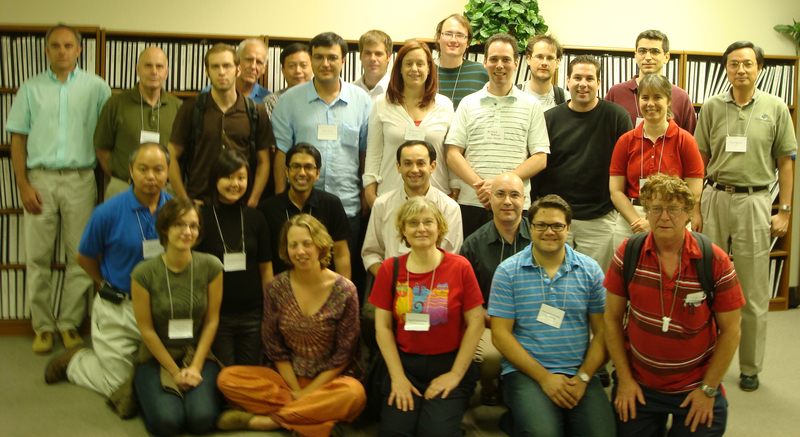
at the
American Institute of Mathematics, San Jose, California
organized by
Sinan Gunturk, Goetz Pfander, Holger Rauhut, and Ozgur Yilmaz
Recent years have seen significant advances in a number of subjects in signal processing and information theory in which frame theory has played a central role. Some of the most important of these "finite world" applications are analog-to-digital (A/D) conversion, coding theory, and compressive sensing. While these subjects fit well within electrical engineering, several key contributions have been made by mathematicians who have strong interest in real-world applications, resulting in fruitful interdisciplinary research collaborations.
A frame is a collection of vectors in a Hilbert space allowing for a stable linear decomposition of any element in the space, similar to a basis expansion. However, a frame is not required to be linearly independent, and consequently, expansion coefficients can be highly non-unique. This redundancy is advantageous for applications in which additional constraints need to be imposed, such as the set of coefficients being sparse or quantized. The nature of such constraints also establishes a venue for the design of specific frames. This workshop will be concerned with the construction, properties, and applications of frames in finite dimensions.
The workshop will focus on the following specific topics:
The workshop schedule.
A report on the workshop activities.
Papers arising from the workshop: